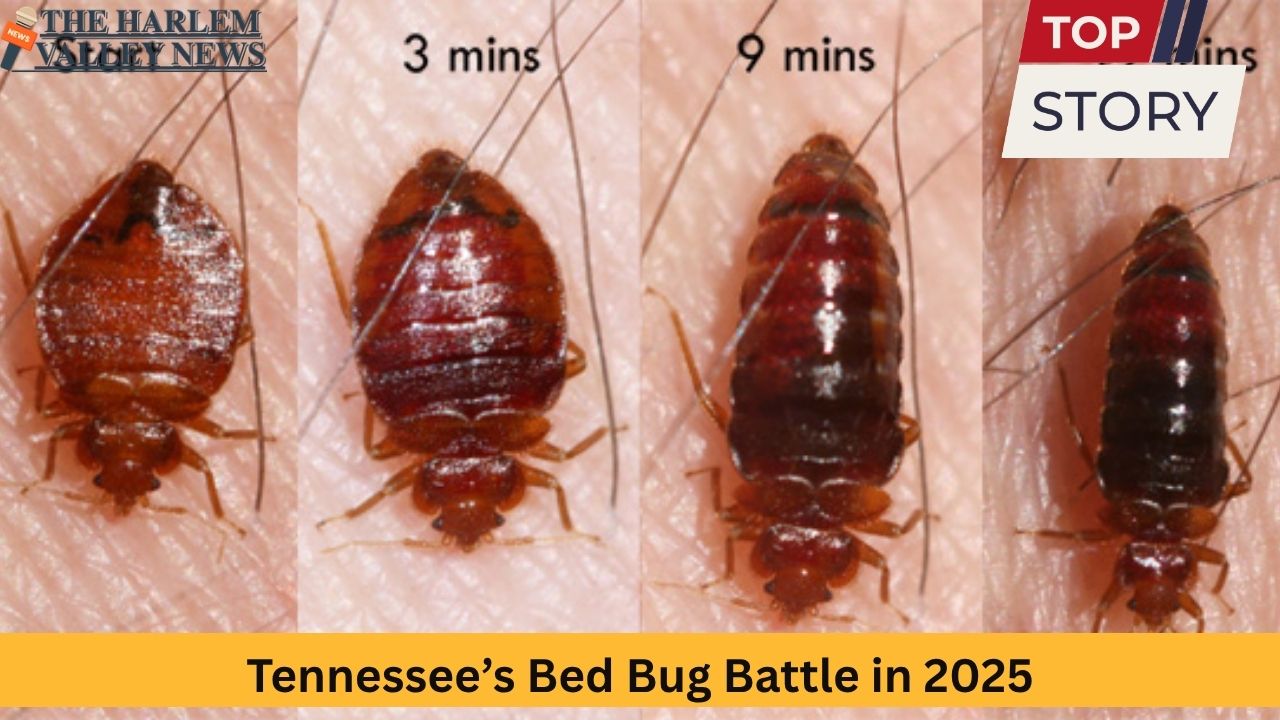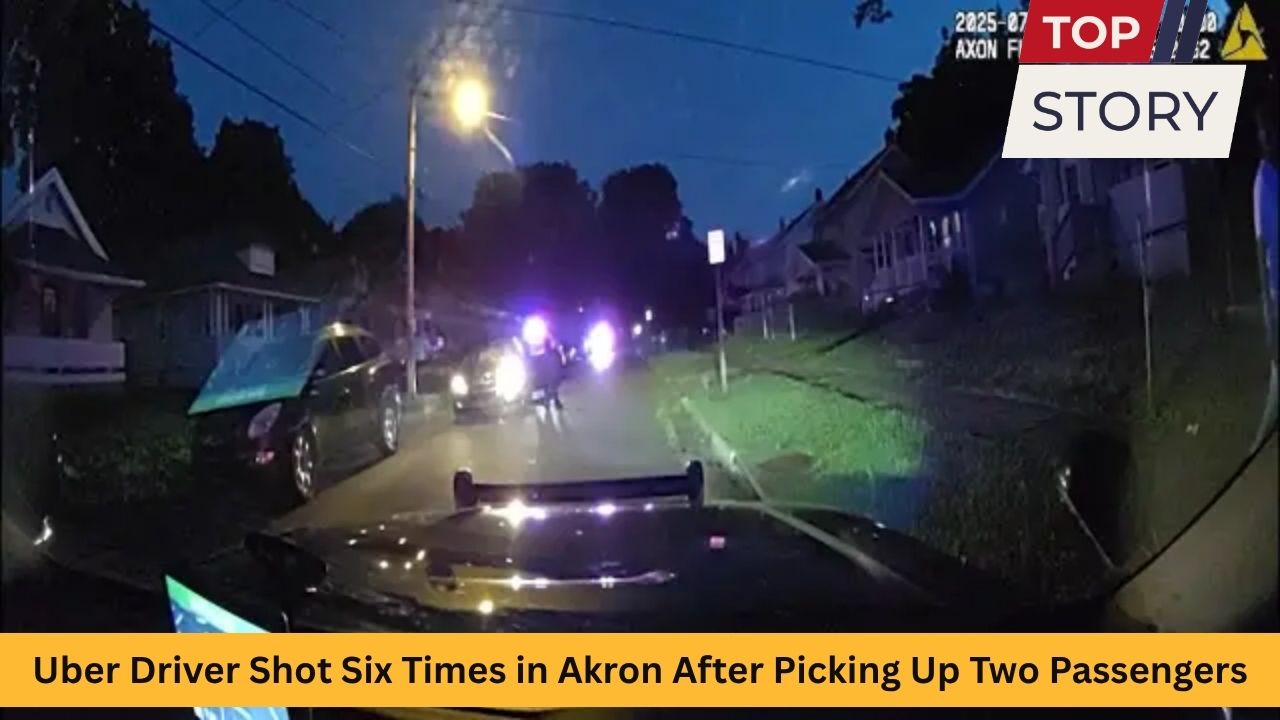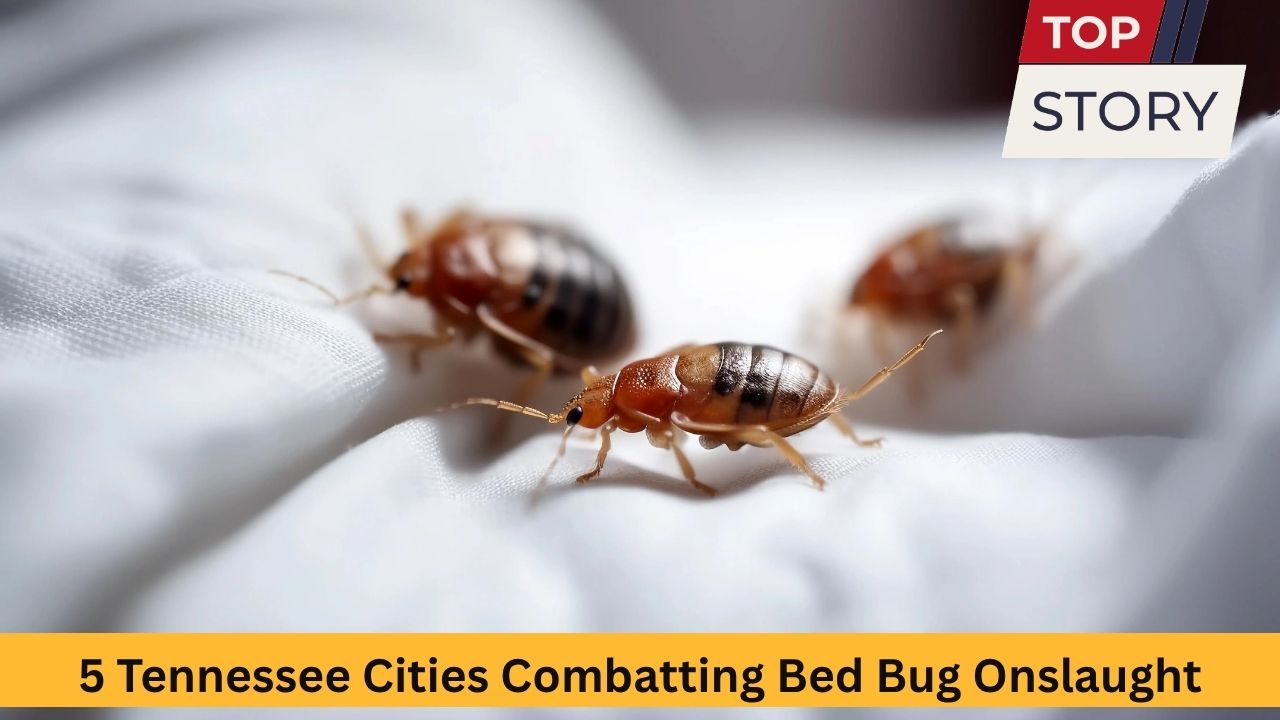Bed bugs—tiny, elusive, and tough to eliminate—have returned with a vengeance across the United States, and Tennessee is far from immune. Once considered a relic of the past, these pests are staging a significant comeback in homes, hotels, apartments, and public facilities across the Volunteer State.
Cities like Nashville, Knoxville, Memphis, Chattanooga, and Clarksville are now in the trenches, fighting the rising tide of infestations. From local ordinances to public awareness campaigns, Tennesseans are working together to protect homes and health from this persistent pest.
Understanding the Bed Bug Epidemic
What Are Bed Bugs?
Bed bugs are small, reddish-brown, flat insects about the size of an apple seed. Though they don’t transmit disease, their bites can cause intense itching, skin irritation, and anxiety. They’re primarily nocturnal, hiding in mattress seams, furniture crevices, and even behind wall hangings.
A single female can lay hundreds of eggs, and bed bugs travel easily on luggage, clothing, and furniture—making them exceptionally hard to contain once introduced.
Why Are Bed Bugs Rising in Tennessee?
The resurgence of bed bugs in Tennessee stems from several factors:
- High domestic and international travel brings bed bugs into cities.
- Dense urban populations provide fertile ground for infestations.
- Resistance to pesticides limits effectiveness of standard treatments.
- Secondhand furniture exchanges increase risk of spread.
- Changes in pest control practices affect early detection and prevention.
Major urban centers across the state have become focal points for this growing crisis.
Nashville: Battling the Big-City Bed Bug Boom
The Challenge in Music City
Nashville ranks among the top 35 bed bug-infested cities in the U.S., with frequent reports from hotels, apartments, and tourist hotspots. High visitor turnover and a bustling short-term rental market mean bed bugs can travel in and out with ease.
Community Response
- Public awareness campaigns target residents, hotel staff, and Airbnb hosts.
- Routine inspections are standard at many multi-family and hospitality properties.
- Nonprofits and city programs assist low-income families with extermination services.
- School systems and libraries provide hygiene resources and educational materials.
Successes and Hurdles
A notable downtown hotel used canine detection units and deep steam treatments to recover from a serious outbreak. However, not all residents can afford professional help, keeping affordable treatment a top priority.
Knoxville: College Town Under Siege
Student Housing and High Turnover
With the University of Tennessee at its core, Knoxville sees high tenant turnover, especially in student apartments and rentals, which often contributes to recurring infestations.
Local Efforts
- University-led awareness programs help students prevent infestations.
- Landlords must disclose prior bed bug treatments to new tenants.
- Quick-response pest teams manage outbreaks in dormitories.
- Annual recycling drives help safely discard infested furniture.
Key Challenge
Stigma and underreporting can delay intervention, allowing bugs to spread. Collaboration among students, landlords, and pest professionals is crucial for long-term prevention.
Memphis: Tackling Bed Bugs in a Historic City
Factors Driving Infestation
Memphis faces a unique challenge with its aging buildings, dense rental communities, and high tourism. Bed bugs are not confined to a specific area—they’re citywide.
Citywide Initiatives
- Free literature and community events hosted at public libraries.
- “Bug patrol” volunteers inspect properties in affected neighborhoods.
- Subsidized pest control for seniors and low-income residents.
- Public-private reporting networks allow real-time mapping and faster responses.
What’s Working and What’s Not
Innovative reporting tools and public engagement have helped Memphis target outbreaks more efficiently. Still, limited resources and delayed responses from landlords in some areas remain a major concern.
Chattanooga: Scenic City Fights Back
The Risk in a Tourist Hub
Chattanooga, a scenic gem attracting tourists and conference-goers, is vulnerable through its hotels, vacation rentals, and hostels. Short-term stays mean more opportunities for bed bugs to move in unnoticed.
Community and Industry Action
- Hotel coalitions require regular room inspections.
- Canine detection teams used at major venues.
- Educational programs for Airbnb hosts cover detection and disinfection.
- Seasonal awareness campaigns remind visitors how to inspect their rooms.
Preventing Panic
By reducing stigma and helping hosts respond quickly, Chattanooga is keeping its tourism-friendly image intact. However, increased traffic during peak seasons requires constant vigilance.
Clarksville: Military Life and Family Homes on Alert
Unique Risks from Frequent Relocation
As home to Fort Campbell, Clarksville experiences high mobility among military families, making it easier for bed bugs to spread between temporary housing, family homes, and apartments.
Targeted Strategies
- Educational seminars support families in transition.
- Rapid response units serve military housing and nearby communities.
- School programs teach kids and parents how to identify and respond to infestations.
- Discounted heat treatments offered through city-partnered pest companies.
Making Progress
Clarksville’s coordinated approach with Fort Campbell is making a difference, but the constant cycle of arrivals and departures keeps the pressure on pest control teams and property managers.
Statewide Unity: Collaborating Against Bed Bugs
Educating the Public
Across Tennessee, city and state health agencies promote:
- Checklists for travelers inspecting hotels and luggage
- Bite identification guides
- Furniture inspection tips for secondhand shoppers
- Clear steps to report or treat infestations
Government and Nonprofit Partnership
The Tennessee Department of Health partners with:
- Universities to research new pest solutions
- Nonprofits to help low-income and at-risk households access treatment
- Local governments to host seminars, workshops, and mattress recycling events
Prevention: What You Can Do
Every Tennessean can take part in controlling the spread of bed bugs. Best practices include:
- Inspect hotel beds and furniture before use.
- Wash clothes and bags on high heat after travel.
- Avoid bringing in used furniture unless thoroughly inspected.
- Act quickly if signs of infestation appear—don’t wait.
- Report issues to landlords and seek professional help when needed.
Looking Ahead: The Fight Continues
Eliminating bed bugs statewide is no small feat. These pests are resilient, capable of surviving for months without feeding, and have evolved resistance to many chemicals.
But Tennessee’s five major cities demonstrate that progress is possible through:
- Vigilant inspections
- Public education
- Community cooperation
- Innovation in pest control methods
As new technologies, treatments, and outreach programs emerge, Tennessee’s future may see fewer cities on the “most infested” lists and more stories of resilience and victory.
Conclusion
From Nashville’s downtown hotels to Clarksville’s military housing, Tennessee’s bed bug battle is both local and statewide. Though each city faces unique challenges, they all share a common goal: protecting residents, guests, and communities from a pest that knows no boundaries.
The path forward is built on awareness, cooperation, and action. By staying informed and working together, Tennessee can continue turning the tide in its fight against one of the most stubborn nuisances of modern urban life.
Stay alert. Inspect often. Act fast. Together, Tennesseans can drive bed bugs out—one community at a time.












Leave a Reply